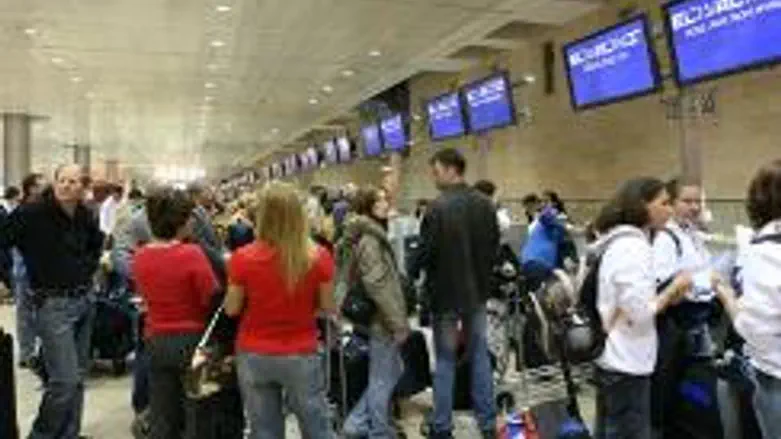
A Jewish vice principal at a New York City public school died Sunday night of complications from the H1N1 virus, swine flu.
Queens resident Mitchell Weiner, 55, was not hospitalized until the middle of last week, when his condition had worsened. By Friday he was fighting for his life in the intensive care unit of Flushing Hospital, where he was treated with Ribavirin, an experimental drug, after other anti-viral medication failed to halt the disease.
He passed away Sunday night -- three days after authorities closed his school, I.S. 238 of Hollis, Queens.
Wiener was on the board of directors and was treasurer of a local synagogue. "He was committed to the success of his students, and was loved and respected by the school community," said Joel Klein, chancellor of the city school system.
The case was unusual in that Weiner's family said he had no underlying medical conditions, other than the gout for which he was already receiving treated, that would explain his death.
City officials announced hours before his death that five more schools in the borough were also being closed, bringing the total to 11 since last Thursday, and 15 since the pandemic began in April.
According to the U.S. Centers for Disease Control and Prevention, 173 people have been hospitalized for the illness. Five have died. In New York, there have been 178 confirmed cases of swine flu, according to the city’s Bureau of Communicable Disease.
Pandemic under Control in Israel
Although Israel’s health alert level is currently at Phase 5, the second-highest on the scale, the pandemic is under control in the Jewish State, with fewer than 10 confirmed cases reported.
Prime Minister Binyamin Netanyahu and UTJ Deputy Health Minister Yaakov Litzman took swift action to halt any potential spread of the virus.
The Health Ministry was ordered to stockpile anti-viral medications, without regard to budgetary constraints, in amounts sufficient to treat at least 30 percent of the population. A special clinic was set up at Ben Gurion International Airport and doctors were stationed at other entry points into the country as well.
Delegations to Mexico, where the pandemic began, were halted until further notice, and Israelis were warned not to travel to the hard-hit country. All people entering Israel are still being asked if they have visited Mexico within the past seven days. Doctors are ordered to examine anyone exhibiting symptoms who arrived from overseas, and anyone who has been in Mexico within a week of their arrival.
Travelers from Mexico who suffer flu-like symptoms are sent on a mandatory trip to the emergency room. Those who are asymptomatic are asked to remain home in self-imposed quarantine and avoid public transportation for one week.
It is not clear whether travelers from New York were being screened in similar ways.
Anyone who has been in contact with someone who has suffered from the illness is asked to avoid crowds.
New York Second Hardest-Hit
New York City Health Commissioner Thomas Friedan said the epidemic has continued to spread through the city, where hundreds are thought to have come down with the infection.
“We are now seeing a rising tide of flu in many parts of New York City,” he told The New York Times, but added that it was not any more dangerous “than the flu that comes every year. We should not forget that the flu that comes every year kills about 1,000 New Yorkers,” he said.
Friedan was named Friday by President Barack Obama to head the CDC, beginning in June – a pivotal position in which he will make decisions on how to deal with the spread of swine flu around the U.S.
The first case of the virus to hit New York City was reported April 23 at a private high school in Queens last month, when swine flu began its initial spread from Cancun, Mexico. More than 100 students complained of flu-like symptoms in that first week alone.